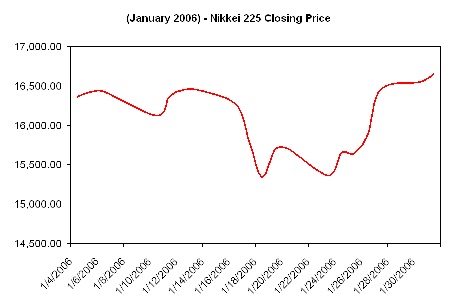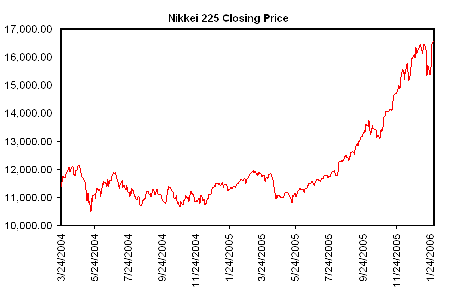Eddie Ohlbaum, an amazing trial lawyer who teaches evidence and trial advocacy classes at Temple (in which I am a quite happy student), was just in Japan teaching lawyers how to BS a jury.
It’s a fun story, but not nearly as dramatic as the real reason for his Asian tour: he was going to assist lawyers in the first due process trial ever held in the People’s Republic of China. On the last day of class before he left, he gave us a brief but impassioned speech about how proud he was to be part of this.
Note the lack of a link here: that’s because it didn’t happen. Instead, he and his colleagues were allowed to witness… a guilty plea. With some superficial witness statements tacked on to determine sentencing: each side was allowed exactly two questions per witness. Ohlbaum’s account of the entire affair was quite amusing: he described his conversations with the defense lawyer, who had no clue that anything special was going on. “But you just went through fifty pages’ worth of discovery!” “Uh, yeah.” “Have you ever seen that much discovery in a trial before?” “No…” “Have you ever seen ANY discovery in a trial before?” “Uh, I guess not… what’s your point?”
The whole thing smacked of show in the end. One highlight: while the defendant was eligible for 3 to 10 years in prison (extortion charges), he got off with five years’ probation. PROBATION. According to Ohlbaum, when the sentence was handed down, the lawyer looked around the courtroom as if to say: “Huh? Am I still in China?”
The other money quote from the good professor’s Asia recap was this: “If you can choose to commit a crime in Japan or the U.S., seriously, it’s worth it to buy the plane ticket.”

 Now that we’ve
Now that we’ve 


 Narita has expanded as far as it can go. Haneda, already the busiest airport in Asia, can’t go anywhere but further into the bay. Tokyo will eventually need a third airport, or so we’re told.
Narita has expanded as far as it can go. Haneda, already the busiest airport in Asia, can’t go anywhere but further into the bay. Tokyo will eventually need a third airport, or so we’re told.



